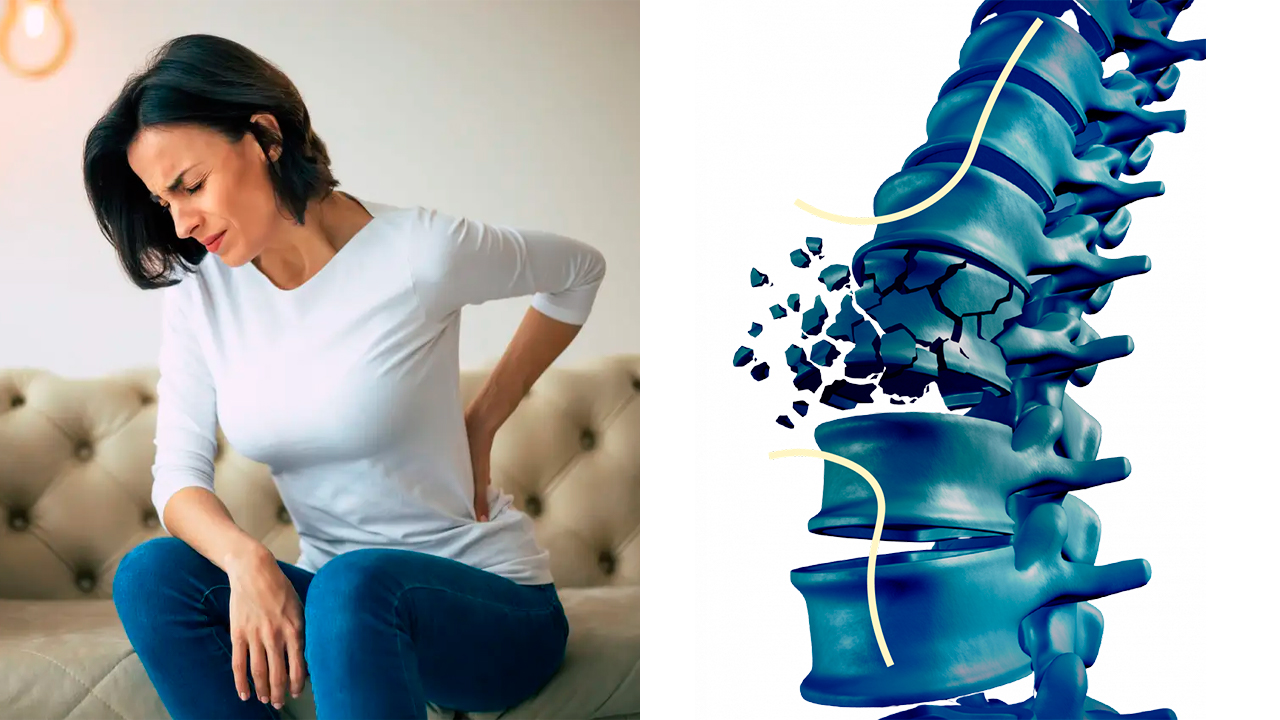Bone loss or Osteopenia is a condition when the body does not create a new bone as quickly as the old bone is getting reabsorbed. Osteopenia is the starting stage of osteoporosis or may later develop into osteoporosis which is the gradual weakening of bones over a period of time. In many cases, if a person’s bones are weak, merely a sneeze or a cough can cause breakage of ribs.
It is a slow developing process, occurs gradually and many times doesn’t show signs or symptoms at all.
Early signs of osteopenia are
- Hunching or stooped posture
- Frequent backaches
- Loss of bone in the jaw
- Weakness from the previous injury or fracture
- Back pain that gets worse when standing or walking, but gets a bit better when you lie down
- Sudden severe back pain
- Loss of height
Risk factors for bone loss
- Being a female
- Is having an alcohol addiction
- Consume less calcium-rich diets
- Smoke
- Have a thin body frame
- Have an early menopause
- Have a history of anorexia nervosa (an eating disorder caused by an unexplained fear of food) in the family
- Lead an inactive lifestyle
- Have a history of Osteoporosis in the family
Diagnosis
The only way to check the proper functioning of bone is by diagnosing the bone density parameter. 80% of bone density can be determined by heredity and 20% by lifestyle choices. Age 30 is the peak of your bone health, where your bones reach their maximum strength this is known as peak bone mass. Bone densitometry or blood test or ultrasound or QCT can be performed to test the bone mass.
Lifestyle modification to prevent bone loss
- Include calcium-rich food in your diet. Some sources are dairy products like yogurt, cheese, and milk. Spinach and broccoli, dried beans, salmon.
- Vitamin D is essential for your body to absorb calcium, and can be found in eggs and in oily fish such as salmon.
- It's also a good idea to spend 10 to 15 minutes in the sun twice a week because this helps convert inactive Vitamin D to an active form.
- Weight-bearing exercises are suggested for strengthening the bones
- Refrain from toxic habits such as smoking and alcohol consumption
- Cut down on carbonated beverages and unhealthy eating.
(Disclaimer: The content on this site is for informational purposes only, and should not be taken as professional medical advice. Always seek the guidance of your doctor or other health professionals for any questions you may have regarding your health or a medical condition.)

 Age 30 is the peak of your bone health, where your bones reach their maximum strength this is known as peak bone mass. It is the time when your bones are the densest. After this, the bone density decreases over time. Here are some ways through which you can prevent the condition of osteoporosis.
Age 30 is the peak of your bone health, where your bones reach their maximum strength this is known as peak bone mass. It is the time when your bones are the densest. After this, the bone density decreases over time. Here are some ways through which you can prevent the condition of osteoporosis.










.jpeg)








.jpg)




.jpg)




